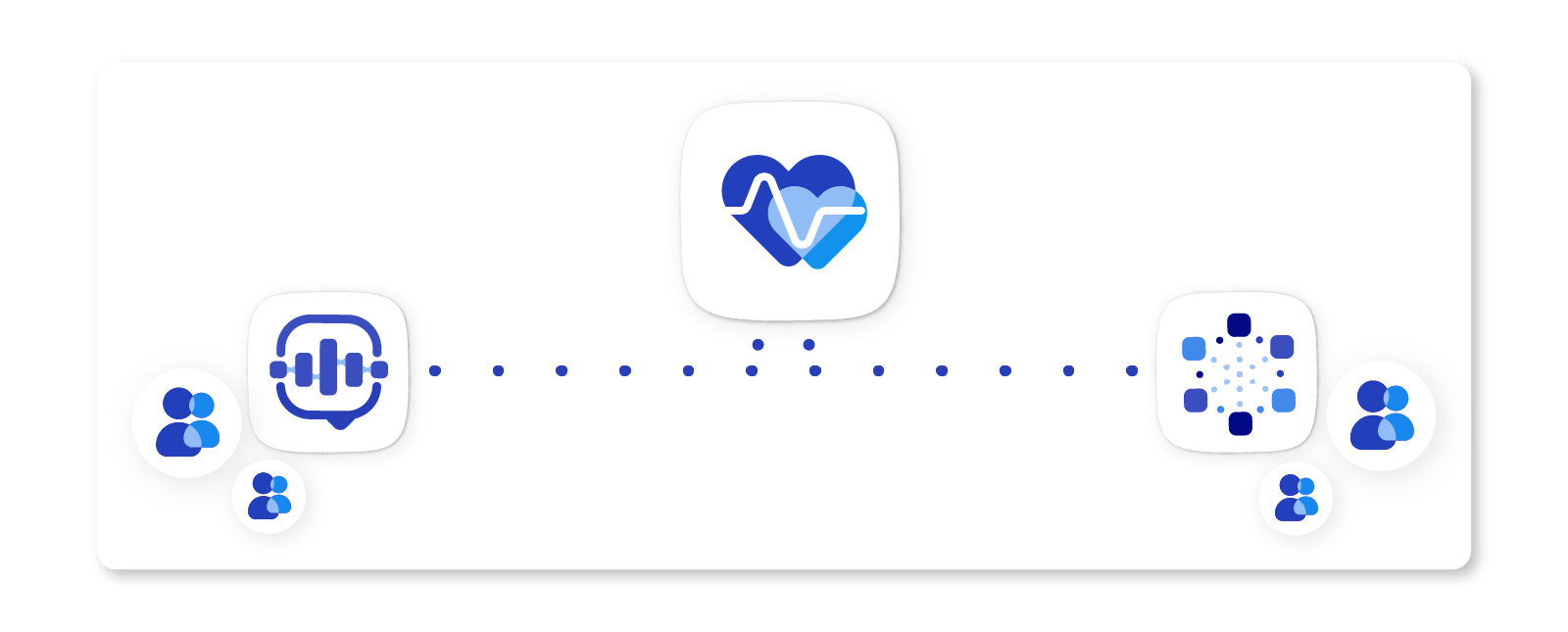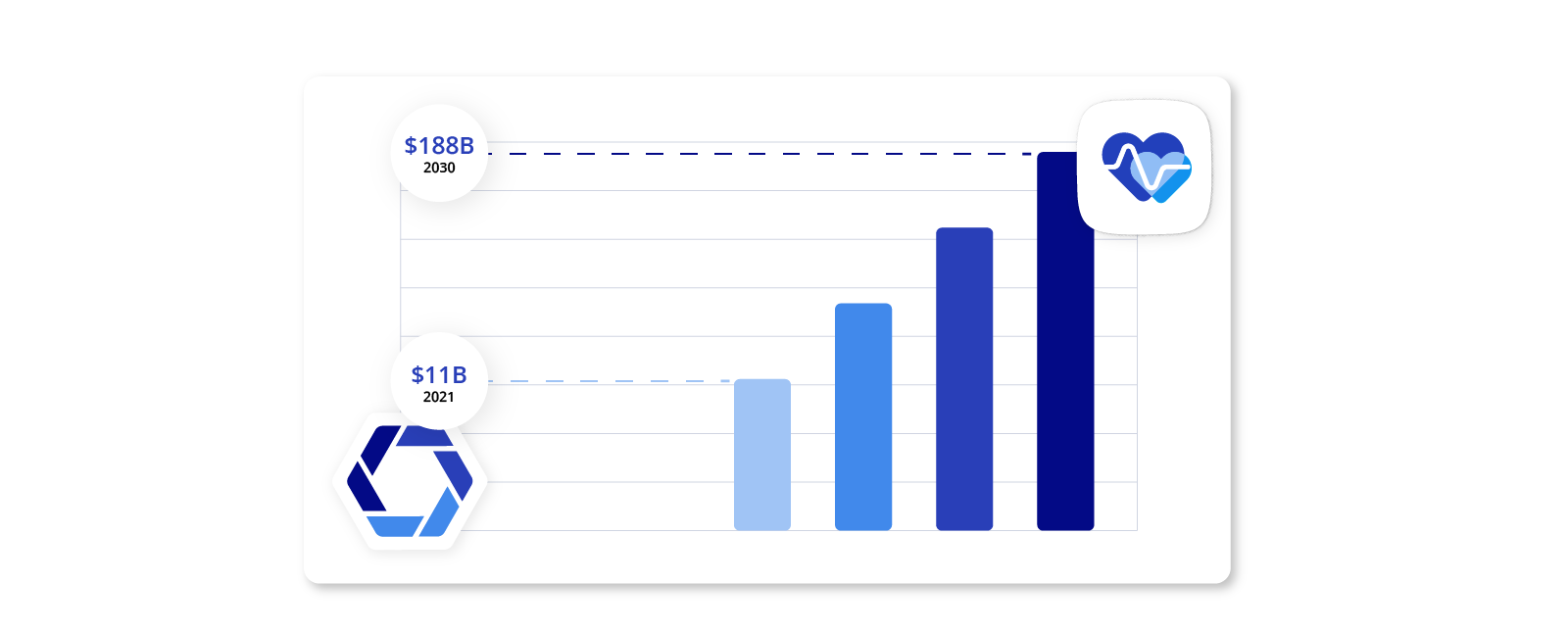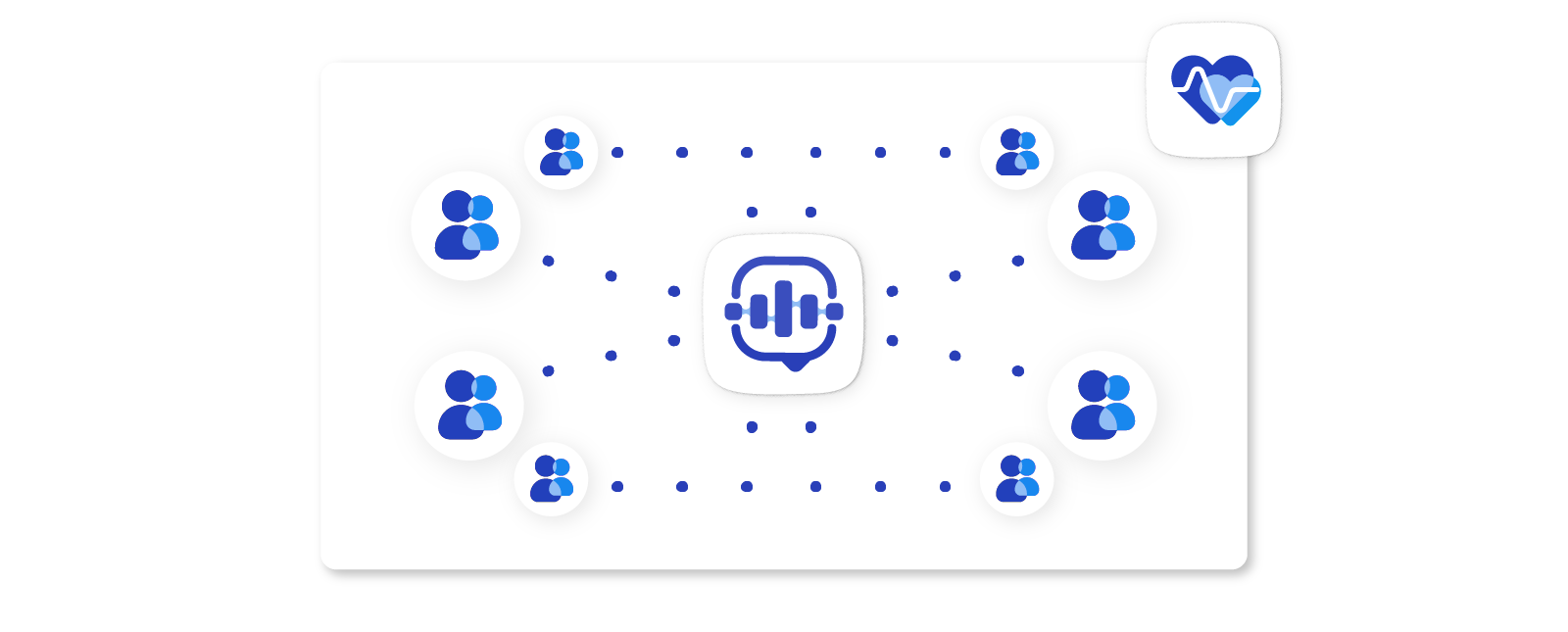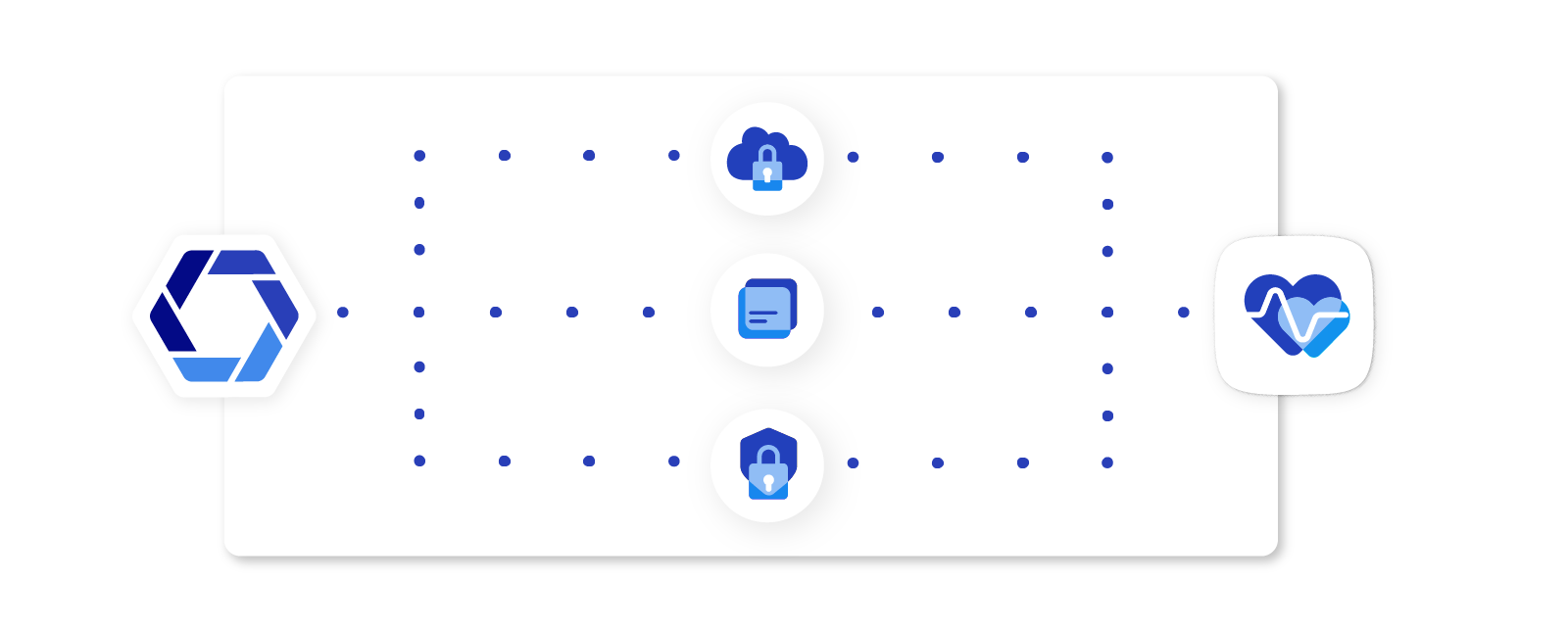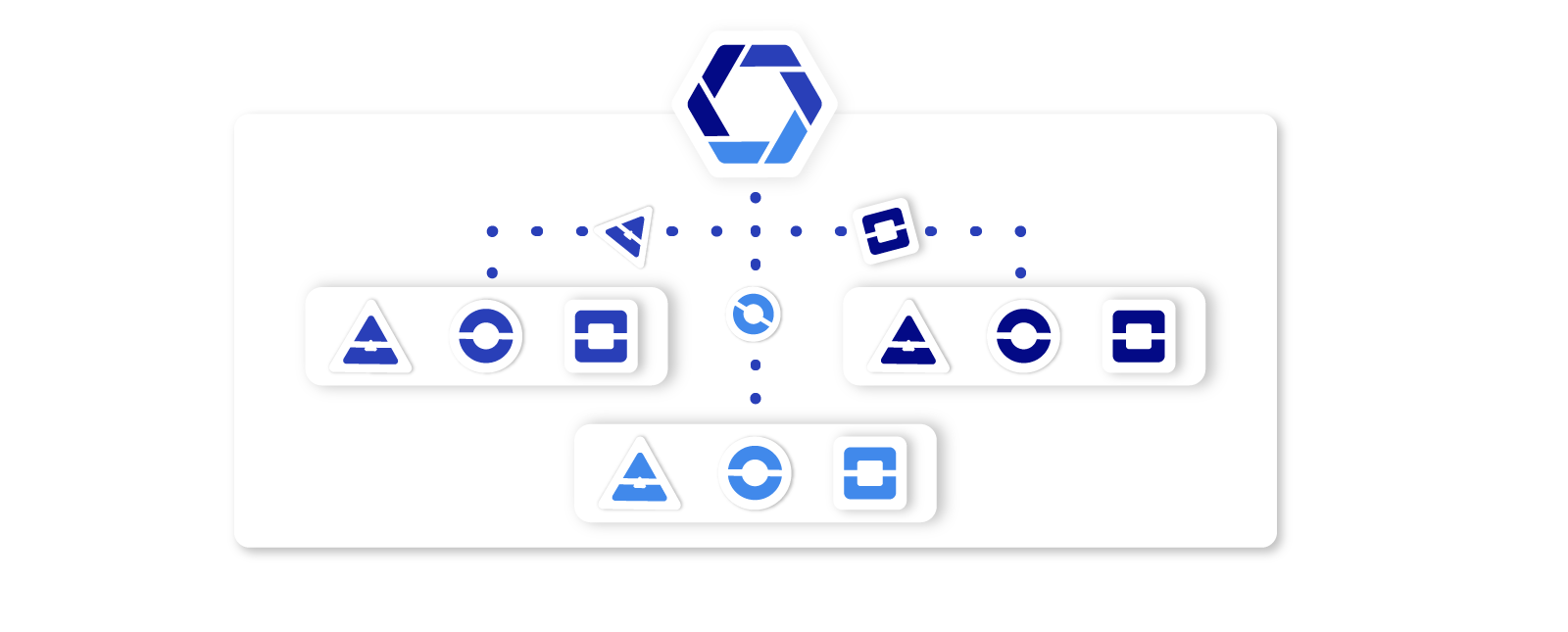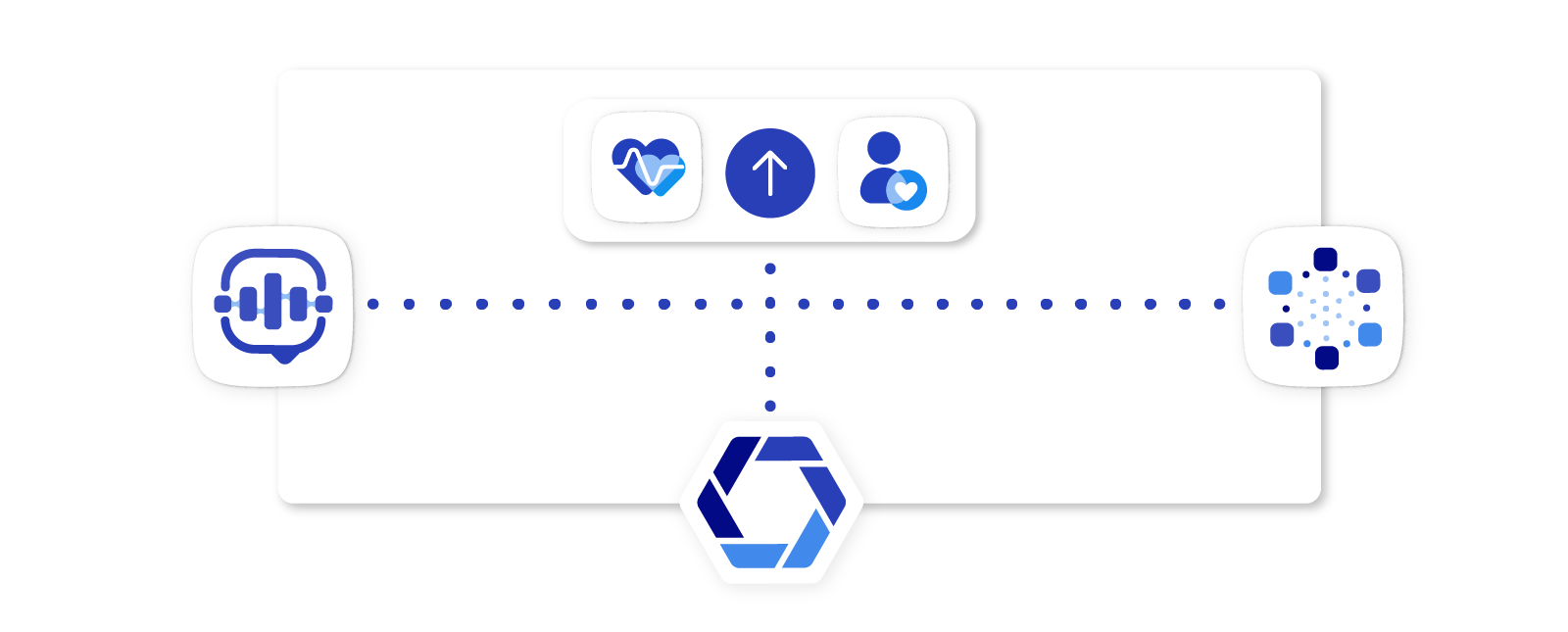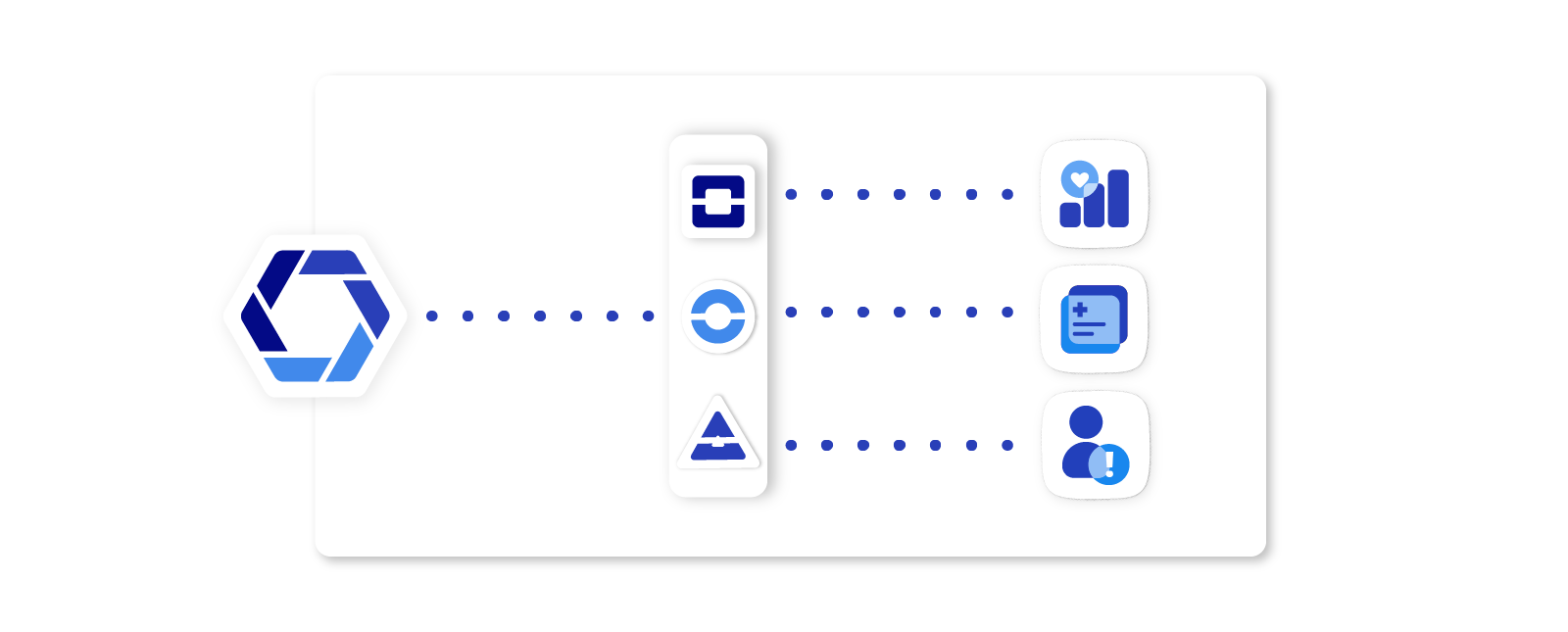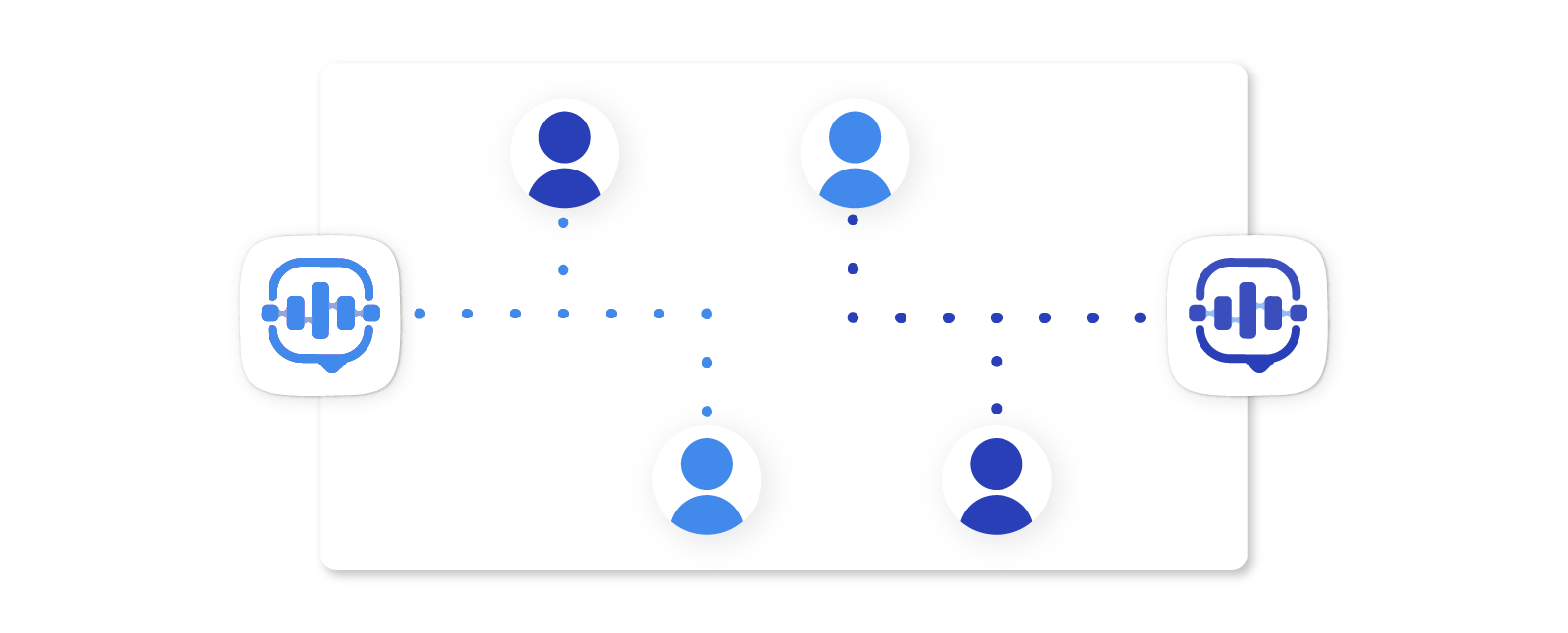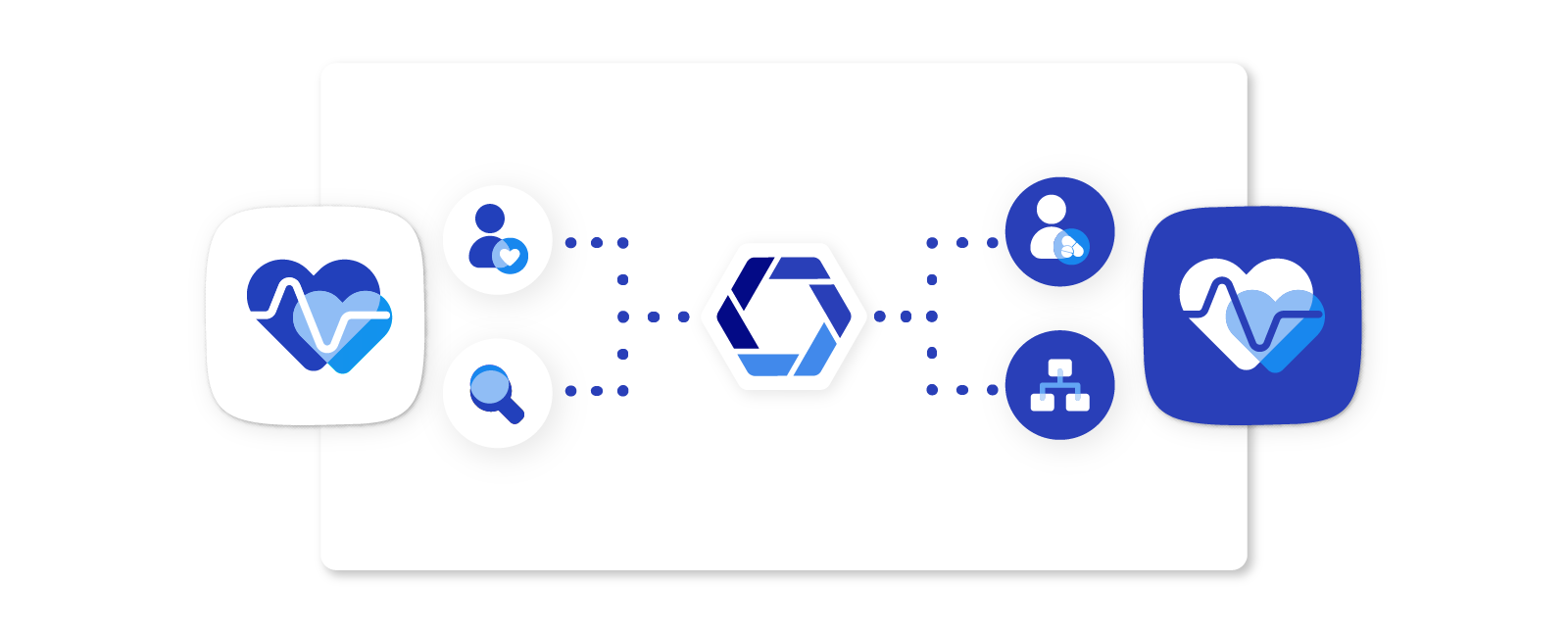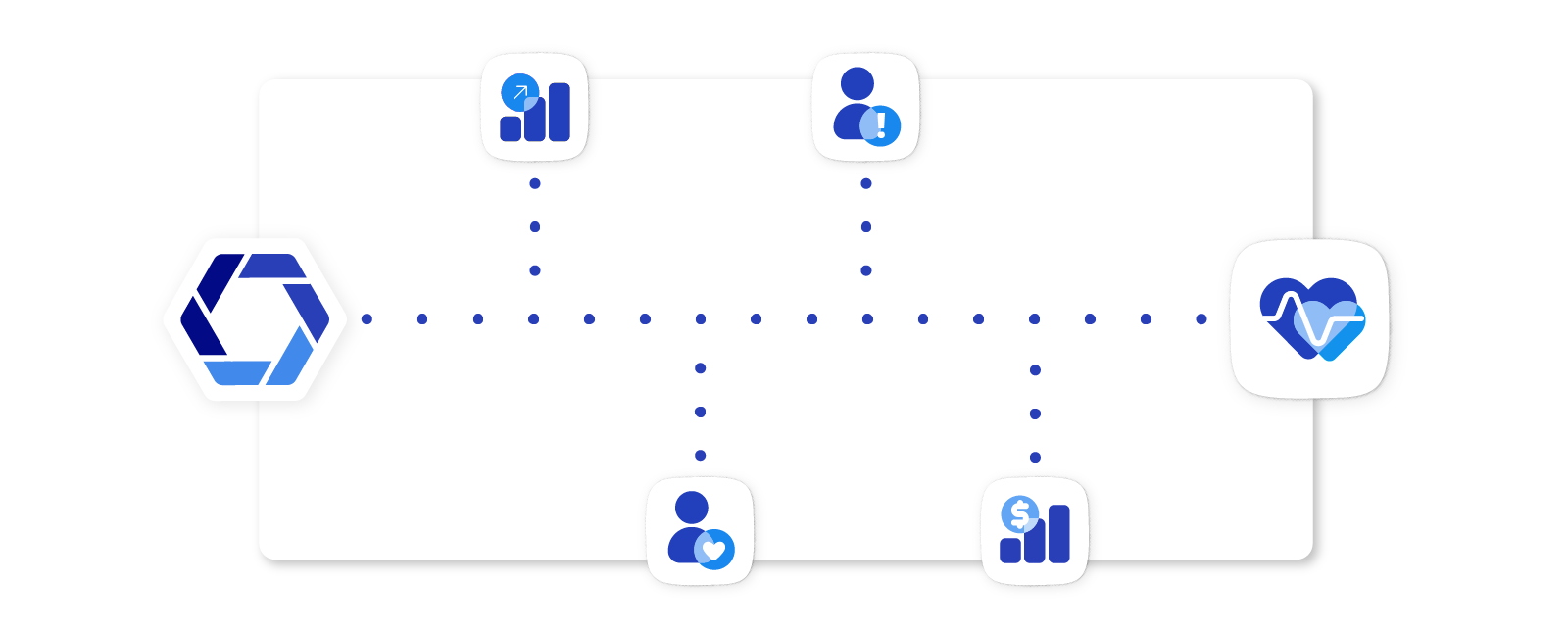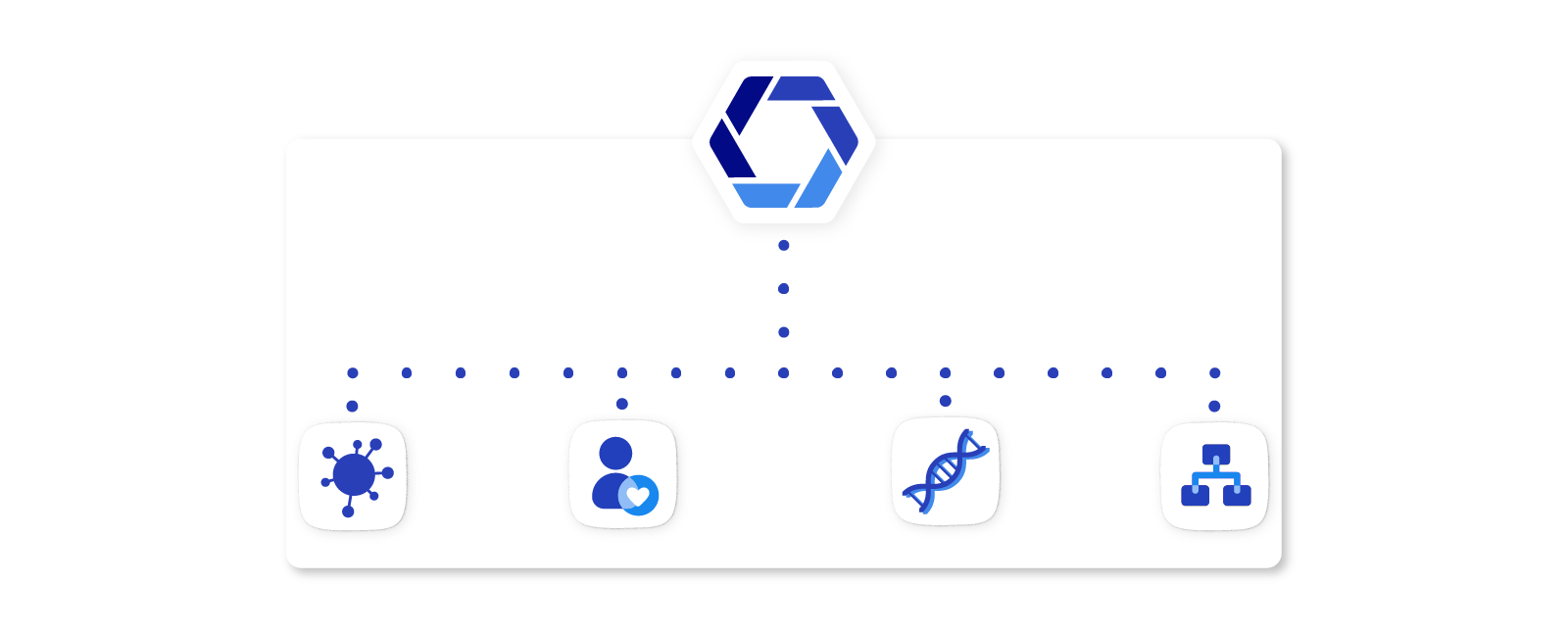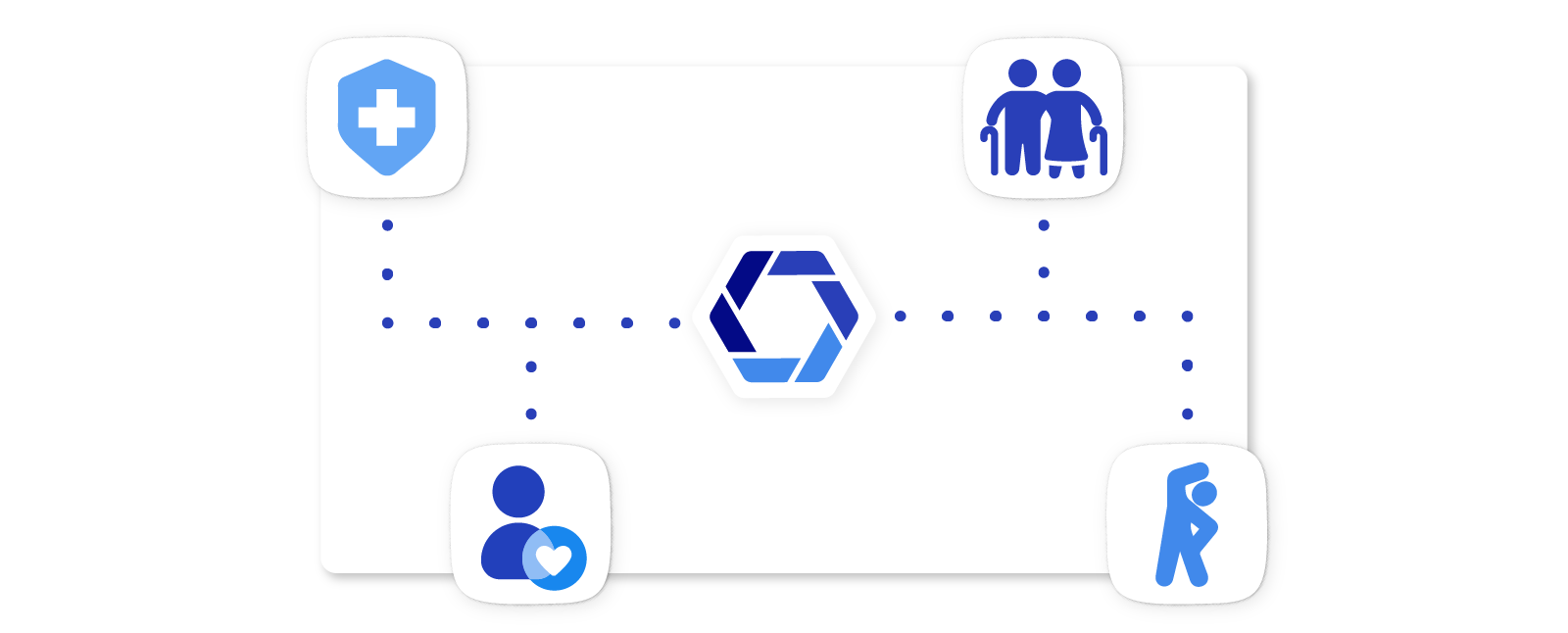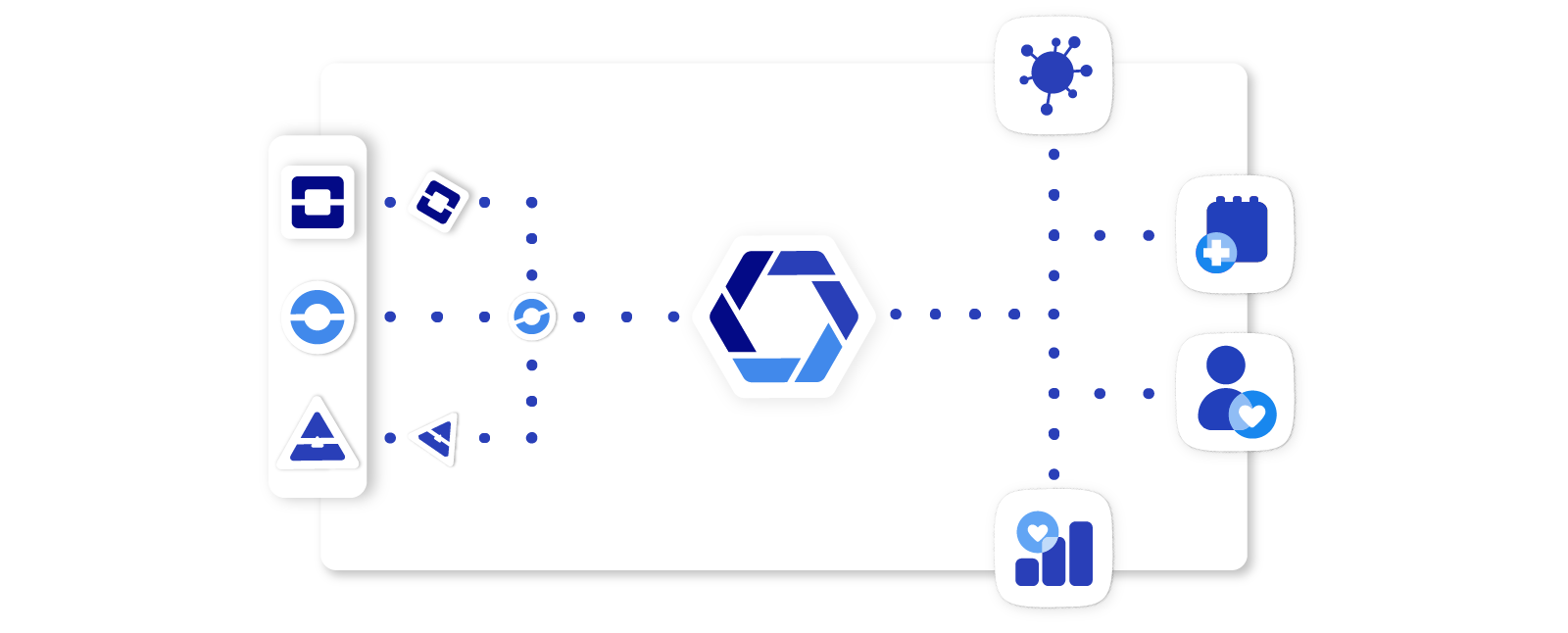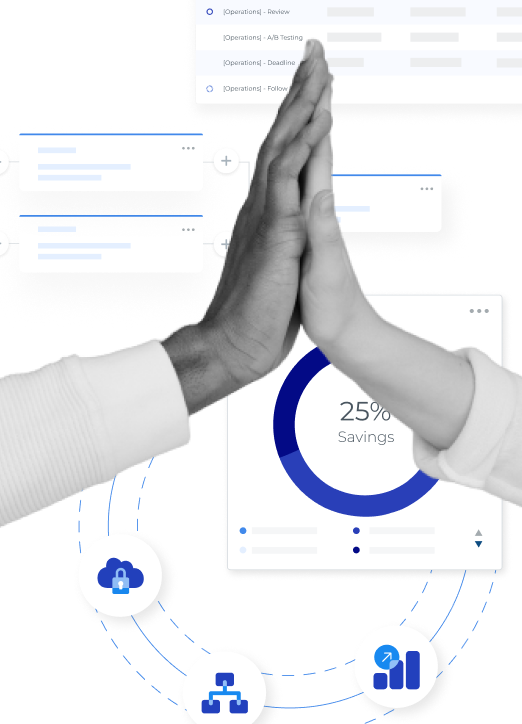As we stand on the brink of the Fourth Industrial Revolution, the convergence of the physical, digital, and biological worlds, no sector remains untouched by the technological advances shaping our future. Healthcare, in particular, is poised for a seismic transformation, with AI acting as a catalyst.
This article delves deep into the transformative power of AI, examining its current applications, future potential, and the challenges it presents in the healthcare sector.
From predictive analytics and personalized medicine to intelligent robotics and autonomous systems, AI is redefining what’s possible in healthcare. It’s not just about streamlining operations or enhancing efficiencies; AI has the potential to radically improve patient outcomes, revolutionize treatment protocols, and democratize access to quality care.
However, as we venture further into this uncharted territory, it’s crucial to address the ethical, regulatory, and practical challenges that come along with these innovations.
Join us as we navigate the exciting landscape of AI in healthcare, shedding light on the technologies shaping the health sector today and those that promise to transform it tomorrow.
What Is AI in Healthcare?
AI in healthcare refers to the use of complex algorithms and software, often termed “intelligent agents,” to emulate human cognition in the analysis, interpretation, and comprehension of complex medical and health data.
Essentially, it is used to mimic human intelligence processes by creating and applying algorithms built into dynamic models. There are two primary categories of AI in healthcare: machine learning (ML) and natural language processing (NLP).
ML, a facet of AI, leverages algorithms to analyze data, derive insights from it, and subsequently make predictions or decisions.
Healthcare providers are increasingly adopting ML algorithms, given their ability to diagnose diseases, forecast disease progression, and predict treatment outcomes with remarkable precision.
On the other hand, NLP equips machines with the ability to understand and interpret human language.
In a healthcare setting, it comes into play by perusing notes and reports from electronic health records (EHRs). It understands the context and formulates conclusions based on the information provided, bringing a new level of efficiency and accuracy to data interpretation in healthcare.
The Growth of AI in Healthcare
The growth of AI in the healthcare sector has been substantial over the past few years and shows promising signs of continued expansion and evolution. This growth can be attributed to several factors, including technological advancements, the availability of vast health data, and the increasing need for improved patient care and efficient administrative practices.
Technological advancements have led to the development of sophisticated algorithms and more powerful computational capabilities, enabling machines to process and analyze large volumes of complex data. This progress has facilitated AI’s application in disease diagnosis, predictive analytics, personalized medicine, and patient monitoring.
Furthermore, the advent of EHRs, wearable technology, and other digital tools has generated enormous amounts of health-related data. AI systems can use this data to create insights and make predictions, further driving AI’s growth in healthcare.
AI’s potential to significantly enhance patient care has also contributed to its growth in the sector. By aiding in early disease detection, providing personalized treatment recommendations, assisting with patient monitoring, and improving patient engagement, AI is poised to revolutionize healthcare.
Additionally, AI can streamline administrative tasks, such as scheduling, billing, and managing patient records, increasing efficiency, reducing costs, and allowing healthcare professionals to focus more on patient care.
As of 2021, the global AI in healthcare market was valued at around $11 billion, with projections suggesting it could reach $188 billion by 2030. This represents a compound annual growth rate (CAGR) of 37% from 2022 to 2030, according to Statista.
As technology continues to advance and more data becomes available, AI’s growth in healthcare is expected to persist. However, addressing challenges like data privacy and ethical considerations is crucial to ensure AI is safely and effectively applied in healthcare.
Why AI in Healthcare Matters
AI is critical in healthcare primarily because of its potential to drastically improve patient outcomes, streamline efficiency, and reduce healthcare costs.
By leveraging ML algorithms, it can analyze a broad spectrum of health data and detect patterns that might otherwise elude human clinicians. This leads to more precise diagnoses and, consequently, better patient outcomes.
Moreover, AI’s predictive capabilities facilitate the customization of treatment plans and prognostication of disease progression, further enhancing patient care.
AI can also significantly enhance efficiency within the healthcare system. It accomplishes this by automating routine tasks, including patient record management, appointment scheduling, and billing, thereby saving time and allowing healthcare professionals to concentrate more on patient care.
Moreover, its capability to swiftly analyze vast amounts of data supports evidence-based clinical decision-making, further boosting efficiency.
In terms of economic impact, AI can potentially reduce healthcare costs by increasing diagnostic accuracy, thereby minimizing unnecessary treatments and hospital stays. Moreover, its predictive analytics can promote proactive health management and preventive care, leading to substantial cost savings in the long run.
Beyond patient care, AI also plays a key role in advancing medical research. AI can expedite medical research significantly by processing and analyzing large datasets at speeds far beyond conventional methods. This includes identifying potential drug candidates, predicting their effectiveness, and reducing both the time and cost involved in drug discovery.
Another key area where AI matters in healthcare is in enhancing access to care. With tools like chatbots and telemedicine platforms, AI can provide remote healthcare advice, making healthcare more accessible, particularly in rural or underserved areas.
Furthermore, AI can significantly improve patient engagement through personalized health recommendations, medication reminders, and real-time health tracking.
The Current State of AI in Healthcare
As of 2023, the landscape of AI in healthcare is dynamic, rapidly evolving, and increasingly pivotal in health management.
It has made significant inroads in diagnostics and treatment planning, with ML algorithms now capable of analyzing vast datasets, including medical images, genomics data, and electronic health records.
These algorithms detect patterns and make predictions, demonstrating promise in early disease detection, such as cancer and Alzheimer’s, often with an accuracy that rivals or surpasses human clinicians.
Additionally, AI is revolutionizing personalized medicine. It enables the development of treatment plans based on individual health data and predictive disease progression. This is incredibly impactful in oncology, where treatments can be tailored to a patient’s unique genetic profile.
AI is also streamlining healthcare operations by automating routine tasks such as patient record management, appointment scheduling, and billing, which frees healthcare professionals to focus more on patient care.
AI-powered chatbots and virtual health assistants are increasingly integrated into patient care. They provide instant responses to patient queries, monitor health, remind patients about medication, and even offer basic health advice, improving patient engagement and access to care.
In the realm of research, AI is accelerating drug discovery. It reduces the time and cost of new drug development by rapidly analyzing large datasets to identify potential drug candidates and predict their efficacy.
The Future of AI in Healthcare
The future of AI in healthcare is extraordinarily promising, with the potential to transform almost every aspect of patient care and medical research. We can anticipate more sophisticated diagnostic tools powered by AI that could detect diseases even earlier and more accurately.
AI will likely continue to revolutionize personalized medicine with increasingly precise treatments tailored to an individual’s genetic makeup and lifestyle. Future AI algorithms could even predict disease progression and recommend preventative measures, fostering a more proactive approach to healthcare.
Furthermore, we expect to see an expansion in the use of AI-powered telemedicine and virtual health assistants. They make healthcare more accessible to people in remote locations or those with mobility issues.
However, the future of AI in healthcare is not without challenges. As AI systems become more integrated into healthcare, issues surrounding data privacy, ethical considerations, and regulatory compliance will become even more critical.
These include the need to ensure the privacy and security of sensitive health data, address the ethical implications of AI decision-making in healthcare, and develop robust regulatory frameworks that ensure the safe and effective use of AI.
Furthermore, there will be a need for training healthcare professionals to work effectively with AI systems and interpret their outputs. Nevertheless, if these challenges are met, the future of AI in healthcare could be a game-changer, leading to improved patient outcomes, more efficient healthcare delivery, and groundbreaking advances in medical research.
How Is AI Used in Healthcare?
AI revolutionizes healthcare by leveraging complex algorithms and vast health data to enhance patient care and medical research. From early disease detection and personalized treatment planning to administrative efficiency and breakthroughs in medical research, it is proving to be a transformative force in the healthcare sector.
Predictive Analysis
AI is transforming the way healthcare providers approach predictive analysis. AI algorithms, built on ML principles, can process vast amounts of health data, learn patterns, and make accurate predictions. This capacity extends from forecasting disease progression to identifying patients at risk of developing certain conditions.
For instance, AI can predict potential complications for patients with chronic diseases like diabetes or heart disease, which enables healthcare providers to intervene before these complications become severe.
Furthermore, AI’s predictive analytics capabilities are critical in hospital settings, where they can forecast patient deterioration or sepsis, facilitating early intervention, and potentially saving lives.
In a broader context, its predictive analytics capabilities play a significant role in public health management. For example, AI can predict infection spread during a pandemic and identify high-risk areas or populations. This predictive power not only helps healthcare providers deliver more personalized care but also aids in making informed public health decisions.
Patient Monitoring
AI’s role in patient monitoring is expanding rapidly with the advent of wearable devices and telemedicine.
AI-powered wearable devices can continuously track vital signs such as heart rate, blood pressure, and blood sugar levels and provide real-time data to both patients and healthcare providers. These devices use AI to detect abnormalities and alert patients and healthcare providers when intervention is necessary.
This real-time, continuous monitoring is particularly beneficial for patients with chronic conditions as it allows for timely adjustments in treatment, promoting better disease management.
In hospital settings, AI-powered patient monitoring systems can track a patient’s condition in real-time, alerting healthcare staff when there’s a sign of deterioration. This not only enhances patient safety but also improves the efficiency of healthcare providers by allowing them to prioritize care based on patients’ needs.
Drug Discovery and Development
AI is aiding drug discovery and development, a traditionally time-consuming and costly process.
By leveraging ML algorithms, AI can analyze vast amounts of biological and clinical data to identify potential therapeutic targets and predict the efficacy and safety of drug candidates. This significantly accelerates the early stages of drug discovery, where potential compounds are identified and tested.
In the development phase, AI can be used to predict the outcomes of clinical trials, identify optimal patient groups for these trials, and monitor patients’ responses to the drug during the trial. This helps streamline the drug development process, reducing costs and shortening the time it takes to bring a new drug to market.
Radiology and Imaging
AI is making a significant impact in radiology and imaging, where it is used to enhance diagnosis accuracy.
AI algorithms can analyze images from X-rays, CT scans, MRIs, and other modalities to identify disease markers. These can often detect subtle changes that might be overlooked by the human eye, helping to diagnose diseases like cancer at an earlier stage when they are more treatable.
In addition to diagnostic support, AI can help radiologists manage their workflow more efficiently. By automating image segmentation and measurement, it can reduce the time radiologists spend on routine tasks, allowing them to focus on more complex cases.
Automated Robotic Surgery
AI is at the forefront of revolutionizing surgical procedures through automated robotic surgery. AI-powered surgical robots, guided by surgeons, can perform complex procedures with greater precision and consistency than human hands alone. These robots can make tiny, precise movements, reducing the risk of complications and leading to better patient outcomes.
In addition to enhancing precision, AI-powered robotic surgery can improve access to surgical care. With telesurgery, a surgeon can control a surgical robot from miles away and perform complex procedures on patients in remote locations. This expands access to high-quality surgical care and reduces the need for patients to travel long distances for surgery.
AI Platforms and Solutions for Healthcare
AI platforms and solutions are reshaping the landscape of healthcare. By enhancing patient engagement, streamlining healthcare processes, and enabling remote care, these advanced technologies are setting new standards in patient care and healthcare efficiency.
AI Chatbots for Patient Engagement
AI chatbots, powered by ML and NLP algorithms, aid patient engagement in healthcare. Available 24/7, these digital assistants interact with patients conversationally, providing immediate responses to health-related queries, reminders for medication and appointments, and personalized guidance throughout their healthcare journey.
Beyond providing information, AI chatbots can also gather essential patient data through regular interactions. This data can be analyzed to tailor treatment plans and interventions to each patient’s unique needs and preferences, ultimately improving patient outcomes.
By enhancing access to information and personalizing care, AI chatbots can significantly improve patient satisfaction, adherence to treatment, and the overall healthcare experience.
Conversational AI for Healthcare Providers
Conversational AI, which encompasses technologies like chatbots and voice assistants, is an increasingly essential tool for healthcare providers. It transforms how providers access and interact with patient data, make clinical decisions, and streamline administrative tasks.
For instance, conversational AI can sift through vast amounts of data in EHRs, present pertinent information to healthcare professionals, and help them make well-informed clinical decisions. It can interpret complex medical jargon, making it easier for providers to understand clinical notes, lab results, and other essential health data.
Moreover, conversational AI is an effective tool for automating administrative tasks, allowing healthcare professionals to focus more on patient care. Tasks such as scheduling appointments, managing prescription refills, or updating patient records can be handled by AI, reducing the workload of healthcare staff.
By automating these routine tasks, conversational AI not only enhances healthcare efficiency but also minimizes human errors that could potentially impact patient care.
AI-Enabled Electronic Health Records (EHRs)
Traditional EHR systems, while useful in digitizing patient records, often present challenges in terms of data overload, unintuitive interfaces, and time-consuming data entry processes. AI enhances EHR systems by enabling intelligent data management and facilitating easier access to essential patient information.
Through NLP and ML algorithms, AI can interpret, organize, and present data in a more user-friendly and meaningful manner. This not only improves the efficiency of healthcare providers but also aids in making more accurate clinical decisions.
Moreover, AI-enabled EHRs have the potential to significantly improve patient care by enabling predictive analytics. By analyzing patterns in the vast amounts of data within EHRs, AI can forecast health trends, identify potential health risks, and suggest preventive measures.
For instance, AI can identify patients at risk of developing chronic conditions like diabetes or heart disease, enabling early intervention. Similarly, it can predict the likelihood of hospital readmissions or patient deterioration, allowing for timely healthcare interventions.
In essence, AI-enabled EHRs are evolving into dynamic, intelligent tools that not only store patient data but also derive meaningful insights to improve patient care.
AI Platforms for Predictive Analytics
AI platforms for predictive analytics play a pivotal role in modern healthcare by offering powerful tools for predicting patient outcomes, identifying health risks, and optimizing healthcare delivery. These platforms use ML algorithms and big data analytics to analyze vast healthcare data, including patient records, clinical notes, lab results, and population health data.
By identifying patterns and trends in this data, AI can predict future health events, such as disease outbreaks, hospital readmissions, or disease progression. These predictions can enable healthcare providers to anticipate patient needs, proactively manage health risks, and deliver more personalized and effective care.
Furthermore, AI predictive analytics can significantly enhance healthcare operations and resource allocation. For instance, AI can predict patient flow in hospitals and clinics, enabling better staffing and resource planning. It can also forecast the demand for specific medical services or equipment, aiding in efficient supply chain management.
In research, AI predictive analytics can help identify potential drug candidates or treatment approaches, accelerating the pace of medical discovery and innovation. Therefore, AI platforms for predictive analytics are not only improving patient care and outcomes but also driving efficiency and innovation in the healthcare sector.
AI Solutions for Telemedicine
AI solutions are increasingly integral to the growth and success of telemedicine, transforming how healthcare is delivered beyond the conventional boundaries of hospitals and clinics.
In the era of digital health, AI-driven technologies enable virtual consultations, remote patient monitoring, and personalized care, all from the comfort of a patient’s home.
AI-powered chatbots and virtual health assistants can interact with patients, gather essential health data, provide health advice, and even guide patients in managing chronic conditions. This constant virtual presence improves patient engagement, adherence to treatment plans, and overall health outcomes.
Moreover, AI enhances telemedicine through advanced analytics and decision support systems. For instance, it can analyze patient data collected remotely to identify health risks, monitor disease progression, and suggest personalized treatment plans.
It can also support healthcare providers in diagnosing conditions via teleconsultations by providing real-time analysis of patient symptoms or medical images. Based on the analyzed data, it can even predict the need for in-person care or emergency interventions.
AI Software for Health IT Interoperability & Data Unification
AI software plays a pivotal role in achieving health IT interoperability and data unification, two critical aspects of modern healthcare that have long posed significant challenges. The disparate nature of healthcare data, often spread across different systems and formats, can hinder the efficient exchange and use of information.
AI software, however, can facilitate interoperability by translating data from different sources into a standardized format, enabling seamless sharing of information among various healthcare systems. This ability improves care coordination and ensures healthcare providers have access to comprehensive and up-to-date patient information.
Furthermore, AI can aid in unifying healthcare data, which involves integrating data from diverse sources into a single, coherent system. This process is particularly important given the growing use of various digital health tools, from electronic health records and wearable devices to telemedicine platforms, each generating massive amounts of data.
AI can analyze and synthesize this varied data and provide a holistic view of a patient’s health status. This unified patient profile can enable more accurate diagnostics, personalized treatment plans, and predictive health interventions.
How AI Is Transforming Healthcare
AI is making a profound impact in healthcare, driving a paradigm shift in how care is delivered and managed. Let’s explore the diverse ways AI is transforming healthcare, from enhancing diagnostic accuracy and improving patient outcomes to streamlining healthcare processes and personalizing medicine.
Improved Diagnostic Accuracy
AI is significantly improving diagnostic accuracy in healthcare. By utilizing ML algorithms, AI systems can analyze vast amounts of data, including medical images and patient health records, to detect patterns and anomalies.
These systems can identify early signs of diseases such as cancer, heart disease, and Alzheimer’s, often with a precision that matches or exceeds that of human healthcare practitioners. This ability to detect diseases early and accurately allows for timely interventions, reducing the risk of complications and improving overall patient outcomes.
Enhanced Patient Outcomes
Through predictive analytics, AI systems enhance patient outcomes by enabling more informed clinical decision-making. They can analyze a patient’s health data to predict disease progression and suggest optimal treatment plans. This can lead to better management of chronic diseases, more effective treatment of acute conditions, and overall improved health outcomes.
AI also improves patient outcomes by enhancing patient engagement, with tools such as AI-powered chatbots and virtual health assistants providing patients with personalized health advice and support.
Streamlined Healthcare Processes
AI streamlines healthcare processes by automating routine administrative tasks, reducing human error, and increasing efficiency. These include managing patient records, scheduling appointments, and handling billing.
AI is also being used to optimize hospital workflows, such as patient triage and bed management, leading to more efficient use of resources. By automating these tasks, AI allows healthcare professionals to focus more on patient care, improving service delivery and patient satisfaction.
Personalized Medicine
AI transforms personalized medicine by enabling treatments to be tailored to individual patients.
By analyzing a patient’s genetic data, lifestyle factors, and personal health history, AI systems can recommend personalized treatment plans that are more likely to be effective and have fewer side effects. This is particularly significant in areas like oncology, where AI is being used to develop targeted treatments based on the genetic makeup of a patient’s tumor.
The Role of AI in COVID-19 Response and Other Pandemics
The COVID-19 pandemic underscored AI’s critical role in managing global health crises. AI proved instrumental in several aspects of the COVID-19 response, from tracking the spread of the virus and predicting its trajectory to aiding in diagnostics and developing therapeutic strategies.
AI-driven data analytics helped researchers understand the epidemiology of the virus, while ML models were used to predict which patients were most at risk of severe disease. AI was also crucial in accelerating the development of vaccines by identifying potential vaccine candidates and simulating how they would interact with the virus at a molecular level.
Looking beyond COVID-19, the potential of AI in responding to future pandemics is immense. Predictive AI models can anticipate disease outbreaks, identify at-risk populations, and inform public health interventions. AI can also aid in rapid diagnostics by analyzing medical images or patient symptoms to detect novel diseases.
In therapeutics, AI can help discover new drugs and vaccines by predicting how different molecules will interact with a virus or bacteria. AI can not only bolster our response to ongoing pandemics but also help us prepare for and mitigate future health crises.
Benefits of AI in Healthcare
The integration of AI in healthcare has brought about a multitude of benefits, including enhanced efficiency, error reduction, personalized patient care, cost-effective services, and advancements in medical research.
Improved Efficiency and Productivity
AI significantly improves efficiency and productivity in healthcare. By automating routine administrative tasks such as patient scheduling, billing, and record management, it reduces the workload of healthcare professionals and allows them to focus more on patient care.
Moreover, AI-powered predictive analytics and decision support tools help clinicians quickly analyze vast amounts of data, leading to faster diagnosis and treatment planning. This increased efficiency not only improves patient care but also helps healthcare providers manage resources more effectively.
Reduction of Errors and Misdiagnosis
AI systems can help reduce errors and misdiagnoses in healthcare. ML algorithms can analyze complex medical data with a high degree of accuracy, reducing the likelihood of human error in diagnosing diseases or interpreting medical images.
Furthermore, AI systems can flag potential errors or omissions in EHRs, enhancing data accuracy and completeness. By reducing errors and misdiagnoses, AI improves patient safety and the overall quality of care.
Personalized Patient Care
AI significantly contributes to personalized patient care, one of the critical aspects of modern healthcare.
By analyzing a patient’s genetic profile, lifestyle, and health history, it can predict individual health risks, recommend personalized interventions, and tailor treatment plans. It can also continuously monitor a patient’s health through digital health tools and adjust treatments based on real-time data.
Moreover, AI-powered systems can engage patients in their care, providing personalized health advice, reminders for medication or appointments, and support in managing chronic conditions. This personalized approach enhances treatment effectiveness, improves patient adherence to treatment plans, and ultimately leads to better health outcomes.
Cost-Effective Healthcare Services
AI has the potential to make healthcare services more cost-effective. By improving efficiency, reducing errors, and enabling early and accurate disease detection, it can significantly reduce healthcare costs.
AI-powered telemedicine platforms also offer a cost-effective alternative to traditional in-person consultations, particularly for routine check-ups or for patients in remote areas. Moreover, its predictive capabilities can help in proactive healthcare, potentially reducing future healthcare costs by preventing or delaying the onset of diseases.
Advancements in Medical Research
AI is driving significant advancements in medical research. By rapidly analyzing large datasets, AI algorithms can identify patterns and make predictions beyond human capabilities. This can accelerate drug discovery, enhance our understanding of diseases, and identify new treatment strategies.
AI also aids in the design and analysis of clinical trials, potentially speeding up the process of bringing new treatments to market.
How AI Solves Problems in Healthcare
AI has emerged as a powerful tool to solve complex problems that healthcare faces today. It is being used to address challenges such as tackling complex diseases, predicting patient deterioration, aiding early detection and intervention in mental health, understanding genetic disorders, and streamlining healthcare logistics and supply chains.
AI in Tackling Complex Diseases
AI enables a more sophisticated understanding and management of complex diseases.
Using deep learning algorithms and predictive analytics, it can analyze and interpret vast amounts of data from patient medical records, clinical studies, and genetic information to identify patterns and correlations associated with complex diseases such as cancer, heart disease, and Alzheimer’s.
These advanced models can detect early signs of disease progression, often before symptoms become apparent, thereby enabling early intervention, and improving prognosis.
Moreover, AI can provide insights into disease mechanisms at a molecular level, helping researchers understand how certain diseases develop and progress. This accelerates the discovery of novel treatment strategies and therapeutics, significantly advancing the battle against complex diseases.
By integrating diverse data sources and providing holistic insights, AI assists in personalizing treatment plans, thereby improving patient outcomes and quality of life.
Predicting Patient Deterioration
AI is a powerful tool for predicting patient deterioration, particularly in critical care settings.
By continuously analyzing patient data such as vital signs, laboratory results, and EHRs, AI systems can identify subtle changes in a patient’s condition that may signal impending deterioration. These systems can alert healthcare professionals, enabling timely interventions and potentially preventing serious complications or death.
AI’s predictive capabilities also extend to long-term patient management. AI can use historical health data to predict potential exacerbations or disease progression for patients with chronic conditions. This allows for proactive management strategies, such as medication adjustments or lifestyle interventions, to help prevent hospital admissions and enhance patient quality of life.
AI in Mental Health: Early Detection and Intervention
AI has significant potential in mental health care, particularly in early detection and intervention.
AI algorithms can analyze various data sources, including social media activity, speech patterns, and even facial expressions, to identify early signs of mental health disorders. By detecting these subtle changes, AI allows for early interventions, which are critical in effectively managing mental health conditions.
Additionally, AI-powered chatbots and virtual therapists can provide accessible and immediate mental health support. These tools can offer cognitive behavioral therapy techniques, monitor a patient’s mood and well-being, and provide resources and recommendations based on the individual’s needs.
In a world where mental health services are often scarce or stigmatized, AI can help bridge gaps in care and provide much-needed support.
AI in Genomics: Understanding Genetic Disorders
AI is a powerful tool in the field of genomics, particularly in understanding and managing genetic disorders.
By analyzing vast amounts of genomic data, it can identify disease-causing genetic mutations and provide insights into the mechanisms of genetic disorders. This allows for personalized treatment strategies based on a patient’s unique genetic makeup, a concept known as precision medicine.
Furthermore, AI can help predict the risk of developing certain genetic disorders based on an individual’s genomic profile. This can inform preventive strategies and early interventions, potentially delaying the onset of disease or mitigating its impact. By harnessing the power of genomics, AI is paving the way for a new era of personalized and predictive healthcare.
AI in Healthcare Logistics and Supply Chain
AI is also revolutionizing healthcare logistics and supply chain management. AI algorithms can analyze demand patterns, optimize inventory management, and streamline distribution processes. This helps prevent shortages of critical supplies, reduces wastage, and ensures that healthcare providers have the resources they need when they need them.
In addition to supply chain optimization, AI can improve operational efficiency within healthcare facilities. This includes patient scheduling, staff allocation, and bed management.
By automating and optimizing these processes, AI reduces administrative burdens and allows healthcare professionals to focus more on patient care. This leads to improved patient satisfaction, better health outcomes, and more efficient use of resources.
AI Applications for Different Specialties
AI’s potential extends far beyond general healthcare applications, permeating various specialties and transforming their approach toward patient care. It is applied in diverse areas such as preventive healthcare, elderly care and monitoring, rehabilitation and physical therapy, and mental health therapies.
AI in Preventive Healthcare
AI plays a critical role in preventive healthcare, enabling early detection of diseases and promoting healthier lifestyles.
AI algorithms can analyze diverse health data such as EHRs, genetic information, and lifestyle factors to predict the risk of developing chronic conditions like diabetes, heart disease, and cancer. This allows healthcare providers to intervene early with preventive measures such as dietary changes, increased physical activity, or medication.
AI also drives advancements in digital health tools designed to promote preventive healthcare. For example, AI-powered wearables can monitor vital signs and activity levels, providing personalized feedback to encourage healthier behaviors.
Similarly, AI-driven apps can provide tailored advice on nutrition, stress management, and exercise, helping individuals take proactive steps toward better health.
AI in Elderly Care and Monitoring
AI enhances the quality of life for older adults while enabling them to maintain their independence.
AI-powered devices can monitor daily activities, detect any deviations from normal patterns (such as falls or prolonged inactivity), and alert caregivers or medical professionals. These systems can also monitor vital signs and track medication adherence, helping to manage chronic conditions and prevent complications.
In addition to monitoring physical health, AI can support mental and emotional well-being in elderly care. AI-powered chatbots and virtual companions can provide social interaction, combating loneliness and cognitive decline.
These technologies can also assist with reminders for medication, appointments, and daily tasks, supporting independent living and reducing the burden on caregivers.
AI in Rehabilitation and Physical Therapy
AI enhances patient outcomes and makes therapy more accessible. AI-driven devices and software can analyze a patient’s movements and provide real-time feedback and personalized exercise plans to improve mobility and strength. This enables more effective and efficient rehabilitation, speeding up recovery times and improving the quality of care.
AI also helps to democratize access to physical therapy. AI-powered virtual physiotherapists can guide users through exercises at home, making therapy more accessible for those with difficulty attending in-person sessions.
AI in Mental Health Therapies
AI is a game-changer in mental health therapies, providing accessible and personalized support for those struggling with mental health issues.
AI-powered chatbots and virtual therapists can deliver cognitive-behavioral therapy techniques, monitor mood and emotional state, and provide resources and coping strategies. This offers an accessible and stigma-free option for those seeking mental health support, particularly when in-person therapy may not be available or affordable.
AI can also enhance traditional therapy by providing mental health professionals insights into their clients’ well-being. For example, AI algorithms can analyze speech and text data to detect signs of mental distress, helping therapists monitor their clients’ progress and adjust treatment plans accordingly.
AI in Healthcare: Future Opportunities and Challenges
In conclusion, AI has tremendous potential to revolutionize healthcare, offering solutions for some of the most pressing challenges in the field.
From preventive healthcare and elderly care to rehabilitation and mental health therapies, AI is transforming how we diagnose, treat, and manage health conditions. By analyzing vast amounts of data, AI can predict disease risks, enable early interventions, personalize treatment plans, and enhance patient outcomes.
But despite its considerable potential, its application in healthcare also brings forth challenges that need to be addressed. These include ethical considerations around data privacy and consent, the need for robust and unbiased algorithms, and the requirement for clear regulatory frameworks.
As the field continues to evolve, it will be crucial to navigate these challenges effectively to harness the full potential of AI in improving healthcare.
AI is not the future of healthcare—it is the present. Embracing AI technology can lead to improved efficiency, reduced errors, cost savings, and most importantly, better patient care.
Ready to unlock the potential of AI in your healthcare operations? At Kizen, we can help you leverage the power of AI to transform healthcare delivery and patient care. Contact us today to learn more about our innovative AI solutions. Your journey towards better healthcare through AI starts with Kizen.


